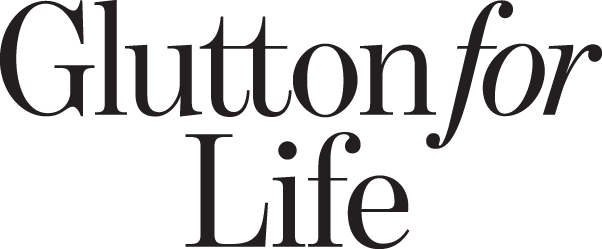5.20.10 Fatty Tidbits
There are a few more things I want to share with you before we move on from our discussion (my diatribe?) on fats. I didn't get a chance to write much about vegetable oils/fats and I really want to clear up a few misconceptions. I think we all started to get the message about margarine a few years back, and the idea that butter was better (something our tastebuds knew all along) slipped back into our consciousness. Let me quickly explain why. Remember polyunsaturated oils? The ones that are so potentially damaging to your health because they become oxidized or rancid when exposed to heat, oxygen or moisture and let loose a whole lot of marauding whoop-ass? (This is why you are told never to heat flax seed oil.) If not, review here. I forgot to tell you that this is why you should seek out cold-pressed or expeller-pressed oils if you are going to cook with any polyunsaturates. These are rendered in a heat-controlled environment. But it probably won't surprise you to hear that these phrases are bandied about rather liberally in this country and that chemicals often find their way into the mix. Spectrum is a good brand to seek out for their conscientious practices. This is yet another instance of how new technologies have rendered obsolete the old-fashioned, time-consuming yet much healthier ways of extracting nutrition from foods. Grinding things between two slow-moving stone presses turns out to be the way to go.

This tendency of polyunsaturated oils to go rancid is another reason you should keep your nuts in the fridge. (There's a joke in there somewhere but I'm not making it.) Interestingly—and I'm going to write about this at greater length in another post on grains—there is a similar phenomenon with processing wheat, oats, etc. Ultimately, we should all have little home grain mills where we can grind whole grains in small quantities that we can use while they're still fresh. Now I know you think I'm crazy.Don't forget about the evils of hydrogenation, the process that turns polyunsaturates, normally liquid at room temperature, into fats that are solid at room temp, namely margarine and shortening. These are made from the cheapest oils—soy, corn, cottonseed or canola and already rancid from the extraction process—mixed with tiny metal particles and subjected to hydrogen gas. I'm not even going to go on to tell you about the soap-like emulsifiers or bleaches that are used. WHY WOULD WE WANT TO INGEST ANYTHING THAT HAS BEEN THROUGH SUCH A PROCESS?

Here is a list of fats I would like you to consider incorporating into your diet, and some suggestions for doing so. Also, many of the recipes I post include these good fats so ideas abound.DUCK & GOOSE FAT - Best when from organic, pastured animals because of course the omegas come from the greens they've eaten. Excellent for frying potatoes (and the potatoes will actually absorb much LESS fat from these than from vegetable oil).LARD (PORK FAT) - Again, from a well-raised, well-fed animal. A great source of vitamin D. Excellent for frying, and also for baking. Leaf lard makes shatteringly crisp pie crust. Even those who think pork meat may present a problem agree that the lard is beneficial.TALLOW (BEEF OR LAMB/MUTTON FAT) - Good for frying and for savory pastries. An excellent source of antimicrobial palmitoleic acid.OLIVE OIL - Extra virgin, unfiltered and never used for frying (moderate temperatures for cooking are OK). Don't eat this exclusively however; it's more likely to contribute to the build-up of body fat than butter or coconut oil!PEANUT OIL - If you won't fry with lard, this is an OK alternative for VERY occasional use.TROPICAL OILS - Clarified palm oil (what was formerly used for commercial french fries until the saturated fat scare replaced it with toxic hydrogenated vegetable oil); coconut oil is excellent for baking.AND OF COURSE BUTTER! Get the organic stuff made from the milk of happy, grass-fed cows and slather it on your whole-grain toast, scramble your eggs in it, stir it into sauces. I know it may be hard to unlearn the notion that everything you love is bad for you. But consider this: There is an "anti-stiffness compound" present in raw animal fat called The Wulzen Factor. Researcher Rosalind Wulzen discovered that this substance protects humans and animals from calcification of the joints, known as degenerative arthritis. It also protects against hardening of the arteries, cataracts and calcification of the pineal gland. Calves fed pasteurized milk or skim milk develop joint stiffness and do not thrive. Their symptoms are reversed when raw butterfat is added to the diet. Pasteurization destroys the Wulzen factor—it is present only in raw butter, cream and whole milk. But the whole dairy story is coming in another post, when I'll tell you about my adventures with raw milk, and making my own butter, buttermilk, fresh cheese and whey.







6 Comments